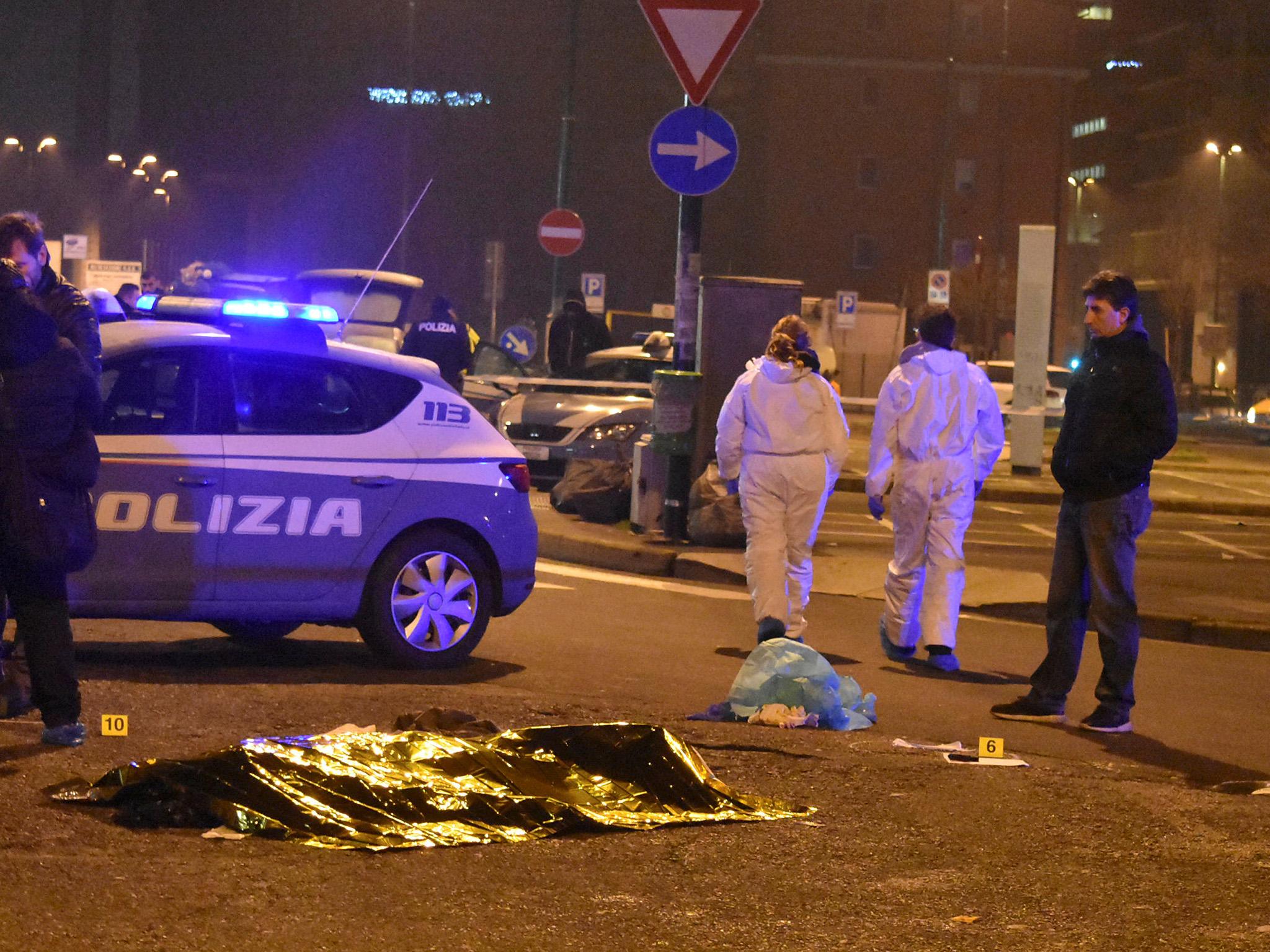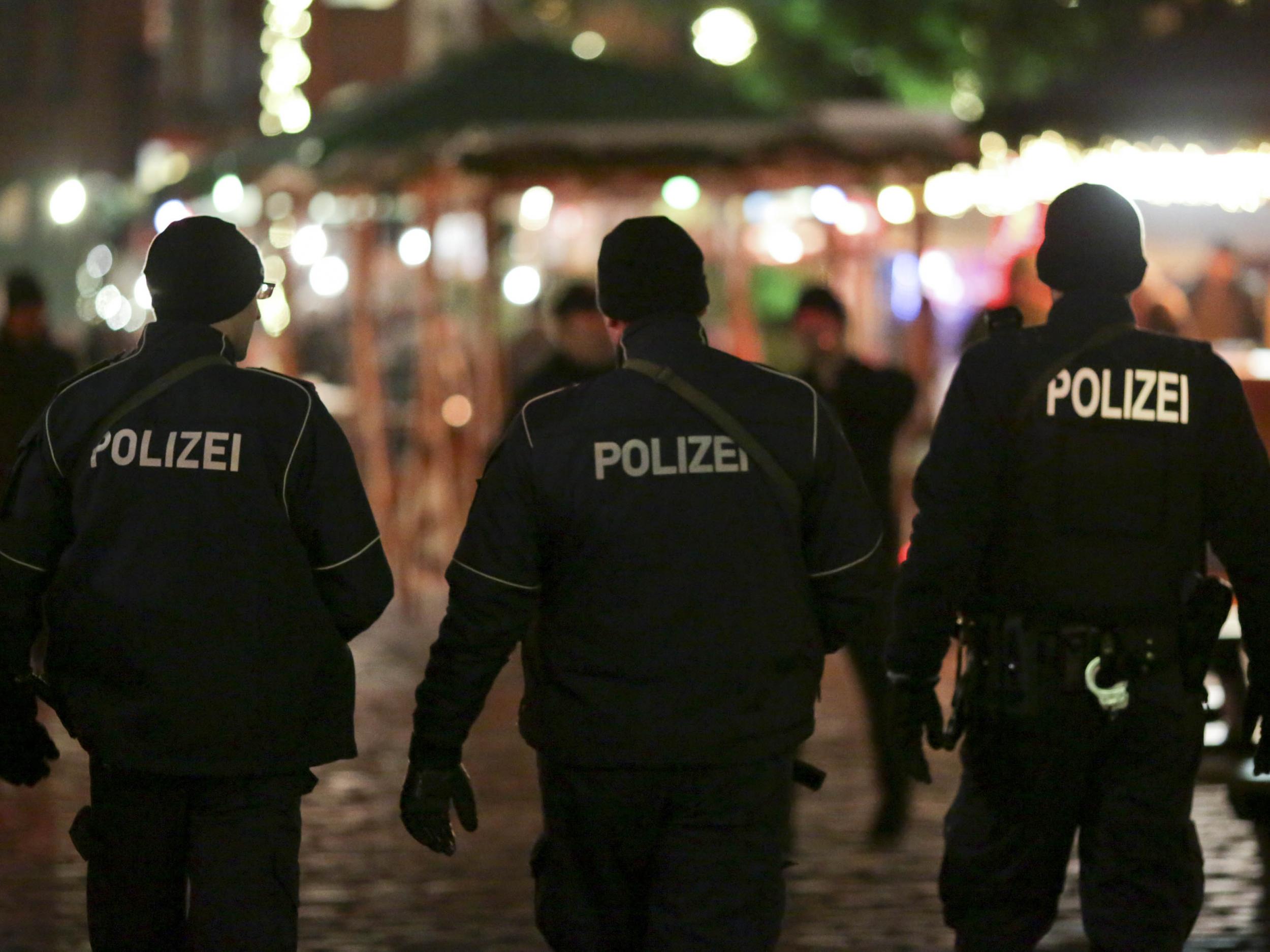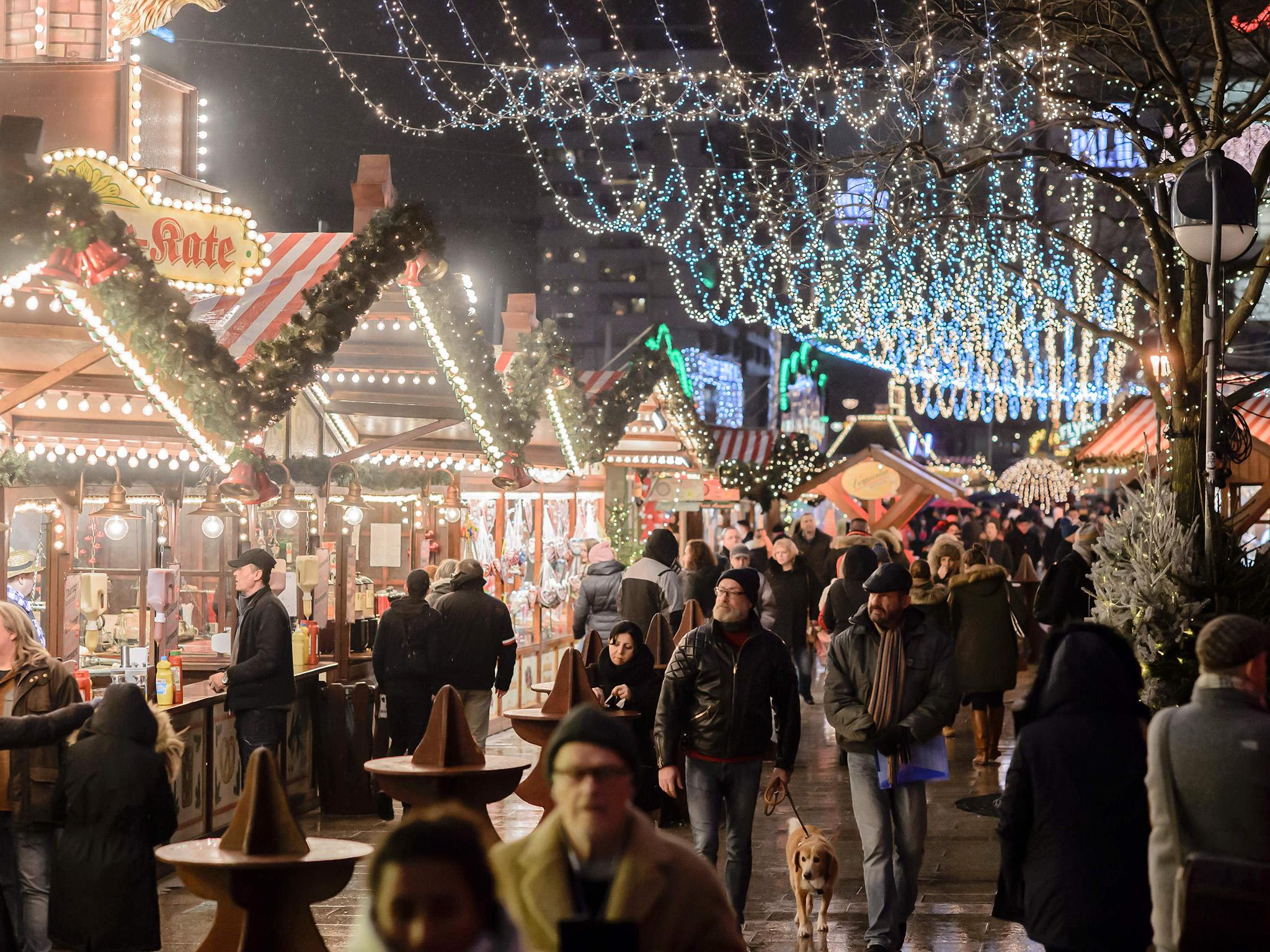Berlin attack suspect Anis Amri killed in police shootout in Milan after four days on run as Europe's most wanted man
Angela Merkel vows to continue investigation into possible accomplices
Your support helps us to tell the story
From reproductive rights to climate change to Big Tech, The Independent is on the ground when the story is developing. Whether it's investigating the financials of Elon Musk's pro-Trump PAC or producing our latest documentary, 'The A Word', which shines a light on the American women fighting for reproductive rights, we know how important it is to parse out the facts from the messaging.
At such a critical moment in US history, we need reporters on the ground. Your donation allows us to keep sending journalists to speak to both sides of the story.
The Independent is trusted by Americans across the entire political spectrum. And unlike many other quality news outlets, we choose not to lock Americans out of our reporting and analysis with paywalls. We believe quality journalism should be available to everyone, paid for by those who can afford it.
Your support makes all the difference.The suspected Berlin attacker has been killed in a shootout with police in the Italian city of Milan after more than three days on the run as the most wanted man in Europe.
Peter Frank, the German federal prosecutor, said investigations into Anis Amri’s associates and a possible wider terror network in Germany would continue, after he was linked with two jailed extremist preachers convicted for supporting Isis.
The terror group acknowledged his death with a statement praising “another attack” on Italian police, in an attempt to spin the shooting to their advantage.
Isis also released a video of Amri pledging allegiance to its leader Abu Bakr al-Baghdadi in Arabic and claiming he wanted to avenge Muslims killed by Western air strikes, to “punish pig-eaters” and become a “martyr”.
It remains unclear whether Amri was inspired by Isis propaganda, which tippedhas called for followers to carry out lorry rammings and other attacks, or had direct contact with the group.

Marco Minniti, Italy’s interior minister, said officers were conducting a routine patrol at 3am local time (2am GMT) when they stopped a man resembling the fugitive.
“At the moment he was stopped, the man without hesitating took a pistol out of his rucksack and shot the police after they asked him for identification documents,” he told a press conference.
“The patrol immediately responded to the shooting. A police officer, Cristian Movio, was injured but fortunately he is recovering in hospital.
“State police officers responded and the person who attacked our patrol was killed.
“Investigations have revealed that the person killed, without any shadow of a doubt, is Anis Amri.”
Local reports said he shouted “Allahu Akbar” while shooting at two police officers, hitting Mr Movio in the shoulder, before hiding behind a car and trying to flee.
The uninjured Italian police officer, 29-year-old Luca Scata, then chased Amri down and shot him dead. He was only nine months into his job.
A train ticket discovered in Amri's backpack suggested he had evaded authorities in at least three countries despite being the subject of a Europe-wide manhunt.

It indicated he had travelled by high speed train from Chambéry in France to the northern Italian city of Turin, before catching a regional train to the suburbs of Milan, a source told Reuters.
He said police were tipped off that Amri could be in the area, triggering additional patrols.
Amri was shot in a square near Sesto San Giovanni railway station, Il Giornale reported, suggesting he had recently arrived.
The reason for Amri's arrival in Italy was unknown and there was speculation he may have been attempting to reach an Islamist network who could give him cover.
Investigations by counter-terror police in Milan showed the .22 calibre pistol Amri used to shoot officers was the same gun that killed the driver of the lorry that ploughed into the German Christmas market. The attack killed 12 people and injured around 60 more.
Amri is believed to have hijacked the vehicle from its Polish driver, Lukasz Urban, as he was parked up in Berlin on Monday afternoon.
The lorry’s GPS showed it moved backwards and forwards “as if someone was learning how to drive it” before it drove around six miles to the Christmas market, accelerating to plough into stalls packed with locals and tourists.
Almost £100,000 has been raised for Mr Urban’s family, including his wife and teenage son, amid reports he gave his life fighting the hijacker in a desperate attempt to stop the attack.
The market reopened on Thursday, with crowds returning in their droves in a show of defiance against the terror wreaked just days before.
Amri fled after the lorry came to a stop, leaving Mr Urban dead in the cabin with knife and bullet wounds. The gun was not recovered, prompting warnings during he was “armed and dangerous” from German prosecutors.
They offered a €100,000 (£85,000) reward for information leading to Amri’s arrest and it was unclear if the money would be paid out.
No suggestion the suspected Isis supporter was in Italy was made public, with reports of the shooting coming as Danish police hunted a man matching Amri’s description in Aalborg.
German authorities had attempted to deport the 24-year-old in June after rejecting his asylum application but a bureaucratic dispute with Tunisia over missing documents proving Amri’s nationality meant he could not be ejected from the country.
Revelations that he had been put under surveillance for six months after being linked to a previous terror plot stoked anger against security services for letting him slip through the net.

Angela Merkel acknowledged the attack had “raised a lot of questions” in a press conference following Amri's death, amid right-wing protests against her refugee policy and criticism from political opponents.
The German Chancellor said the investigation continued and any accomplices would be found, after a numerous security blunders were revealed.
“We can be relieved that an acute danger has ended,” Ms Merkel added, warning that terror risks continue in Germany.
“Wherever there is a need for political or legal changes, we will quickly implement the necessary measures in government.”
Ms Merkel, who is running for her fourth term as Chancellor, also said she had spoken to her Tunisian counterpart and the countries would be increasing cooperation to speed up deportations.
Amri’s brothers believe he may have been radicalised while serving a prison sentence for arson in Sicily, while he was wanted for armed robbery in Tunisia.
He was also known to deal drugs in Berlin and had been involved in a violent brawl, fitting the profile of young criminals frequently targeted by Isis recruiters with the offer of “redemption”.
Separately, German special forces arrested two brothers suspected of planning a terror attack on a shopping centre in the city of Oberhausen in North Rhine-Westphalia.
Police said the operation in Duisburg had no connection to Amri and the Berlin attack.
